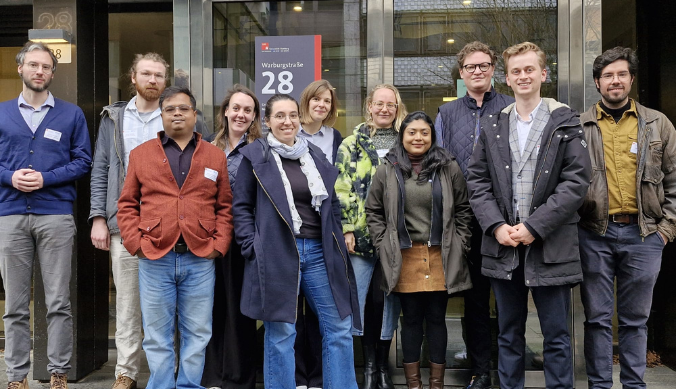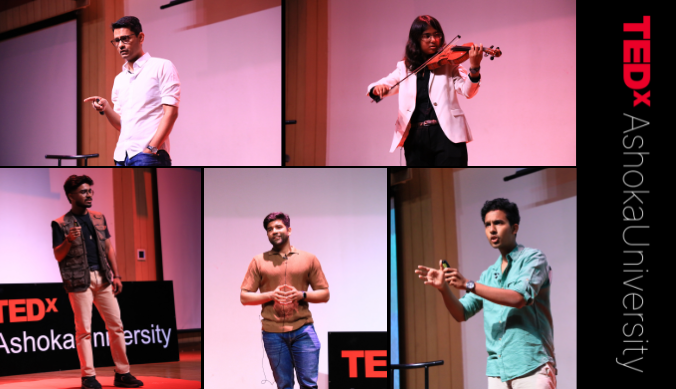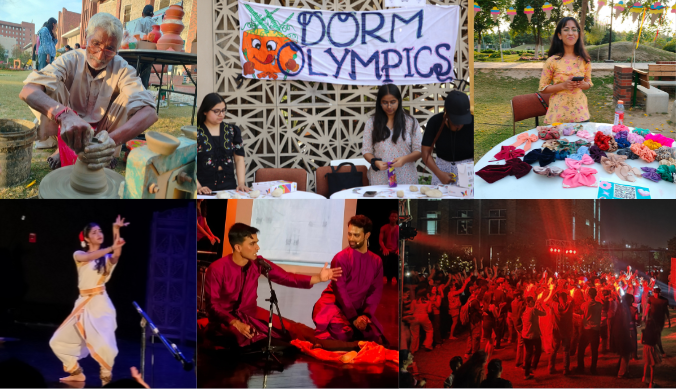Our Focus in 2025 is to Grow in New, Especially Interdisciplinary, Directions: Professor Gautam Menon, Dean, Research
This interview features insights from Professor Gautam Menon, Dean of Research and Professor of Physics and Biology, on Ashoka University’s vision for its research ecosystem in 2025.
As Ashoka University embarks into the next decade, there is an increasing focus on expanding interdisciplinary research capabilities that bridge the gap between the sciences, humanities, and social sciences. In an exclusive conversation with us, Professor Gautam I. Menon, Dean of Research and Professor of Physics and Biology at Ashoka University, details Ashoka’s research vision for 2025, the collaborative efforts under the Trivedi School of Biosciences, and the significant strides being made in integrating the humanities and social sciences with ongoing work in the Sciences.
What is Ashoka University’s vision for its research ecosystem in 2025? How does Ashoka plan to position itself as a leading hub for interdisciplinary research in India that bridges science, humanities, and social sciences?
Professor Menon: Our focus in 2025 will be to consolidate the progress we have made over the last few years while growing in new, especially interdisciplinary, directions. The Trivedi School of Biosciences is now a leading biology department in the country, with new centres such as the Koita
Centre for Digital Health is working at the intersection of medicine, big data, and machine learning. A very substantial grant we’ve received from the Harish and Bina Shah Foundation to set up a School of Humanities will further enhance the already high profile of the Humanities at Ashoka. The challenge for us in 2025 and beyond will be to integrate such parallel efforts. The sciences are already talking to each other. Seeding conversations connecting the sciences to the social sciences and humanities, including in areas such as the ethics of AI, climate change-driven inequality, the social consequences of urban heat, as well as philosophical questions around data privacy, should lead to collaborations that are unique in India.
What strategies is Ashoka using to engage more undergraduate and postgraduate students in meaningful research opportunities?
Professor Menon: The great advantage with being young is that, if you are well-prepared and have the right opportunities at the right time, you can explore questions that could potentially open up new areas of investigation. We offer multiple internships, projects, and ESP (Experiential Learning) projects. Ashoka students have access to a broad range of research opportunities both on-campus and off-campus for independent project work. These projects, aligned with the National Education Policy (NEP) and Ashoka’s research framework, are central to enabling students to work independently in new areas of research. Supporting them is vital to how Ashoka sees the importance of student research.
How does the Research and Development Office (RDO) plan to enhance collaborations with international universities, research institutes, and industry?
Professor Menon: A very important pillar of what we plan to do going forward is to make sure that we establish sound working research relationships and student exchange programs with a number of prominent universities both in India and abroad. This will ensure that our students, whether at the undergraduate, graduate, or PhD levels, have access to a diverse range of opportunities that our country and institution cannot solely provide. The RDO cannot handle everything alone. We have a focused effort directed at the internationalisation of our research ecosystem, with contributions from initiatives such as Ashoka Global and Ashoka Global Research Alliance ( AGRA). The RDO’s role is to support this thrust, ensuring that the university provides the necessary infrastructure, support, guidance, and resources to faculty and students in these collaborations.
Are there any upcoming initiatives to expand research infrastructure or funding opportunities at Ashoka?
Professor Menon: We are currently in discussions with multiple funders interested in supporting advanced research. While I cannot share specific details at this stage, I can assure you that exciting developments are on the horizon. Keep an eye on announcements from the RDO, as these upcoming initiatives will significantly enhance Ashoka’s national and international research impact.
As a leader in climate research, how do you envision expanding Ashoka’s contributions in this critical area? What new projects or programmes can we expect in 2025?
Professor Menon: One of the areas where Ashoka is already making an impact is the intersection of climate, environment, and health. The Centre for Health Analytics Research and Training (CHART) is deeply involved in such efforts, quantifying the extent of air pollution in India and its consequences for health. The Centre for Climate Change and Sustainability (3CS) works across multiple departments, supporting initiatives such as long-term studies of the environment as well as the changing agroecology of the Eastern Ghats. Our goal is to bring together more researchers working in these fields and strengthen collaborations across disciplines.
We are particularly interested in issues connecting climate change, health and society, and how understanding these connections might help us adapt better to climate change. Given the urgency of these challenges, our research in this field will be increasingly vital for the country in the next few decades. I would like to see Ashoka at the forefront of research relevant to these questions.
Study at Ashoka













